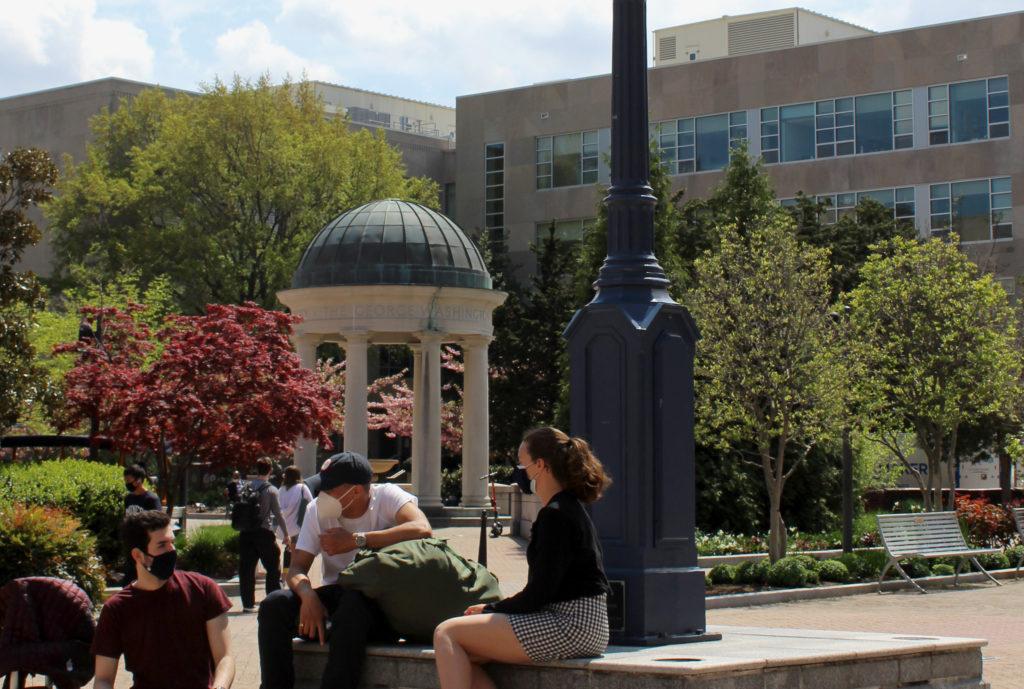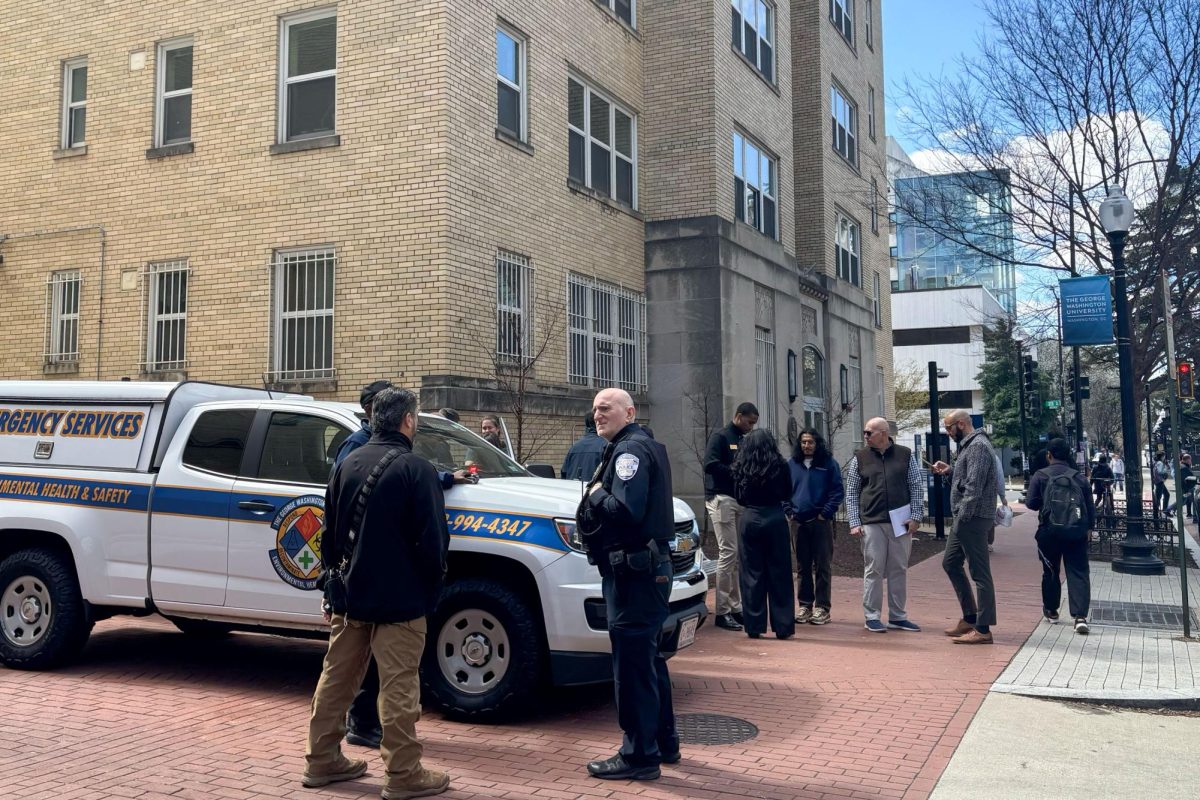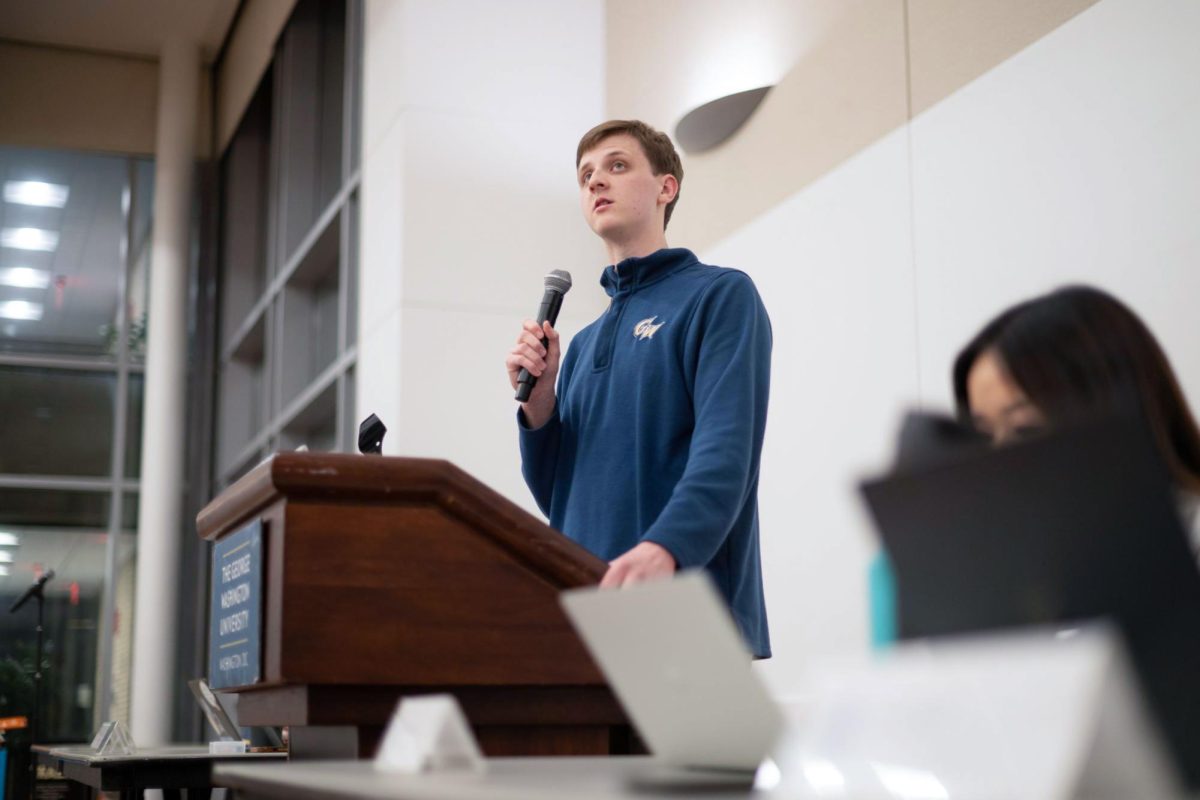About 60 courses will have in-person or hybrid elements in their instruction this summer, continuing the University’s “phased reopening” as COVID-19 cases drop and vaccination rates rise.
Koren Bedeau, the senior associate provost for special projects, said summer classes will still operate with primarily virtual operations, but courses with either in-person or hybrid components will be taught in the Columbian College of Arts and Sciences, the Elliott School of International Affairs, the School of Business, the School of Engineering and Applied Science, the School of Medicine and Health Sciences and the School of Nursing.
Bedeau said officials could move forward with a phased reopening of on-campus activity this summer because of the success of GW’s efforts to contain the coronavirus’ spread on campus and increased vaccine distribution this past semester.
“Guidance from the District and our medical, health and safety experts will continue to inform protocols that will be a part of our summer instruction and research,” she said in an email. “Research activity and labs will be active within safe limitations and toward phased reopening.”
Bedeau said more than 610 students are registered for summer classes with in-person components, and 475 of those students are currently enrolled in classes. She said 77 faculty members plan to teach through the partly in-person or hybrid format this summer, with some having several sections that will be “team taught.”
Officials said “approximately” 77 courses would include some form of in-person or hybrid instruction during the past semester, following 68 last fall. Officials are requiring COVID-19 vaccination for students, faculty and staff before returning to campus this fall, but they haven’t instituted a requirement for the summer.
Bedeau said the in-person components for summer classes will create more flexibility for students and faculty through support and experimentation with varied learning styles, like hybrid technology and teaching skills.
“Throughout our period of remote learning, we have responded to the need for flexibility to enable safe continuation of instruction and research that could not otherwise take place, and that has continued this summer,” she said. “In addition, some of the hybrid summer offerings are taking place as a result of academic innovation and the creativity of our faculty who have identified enhancements that are uniquely available when embracing remote technology to enhance course design and instruction.”







